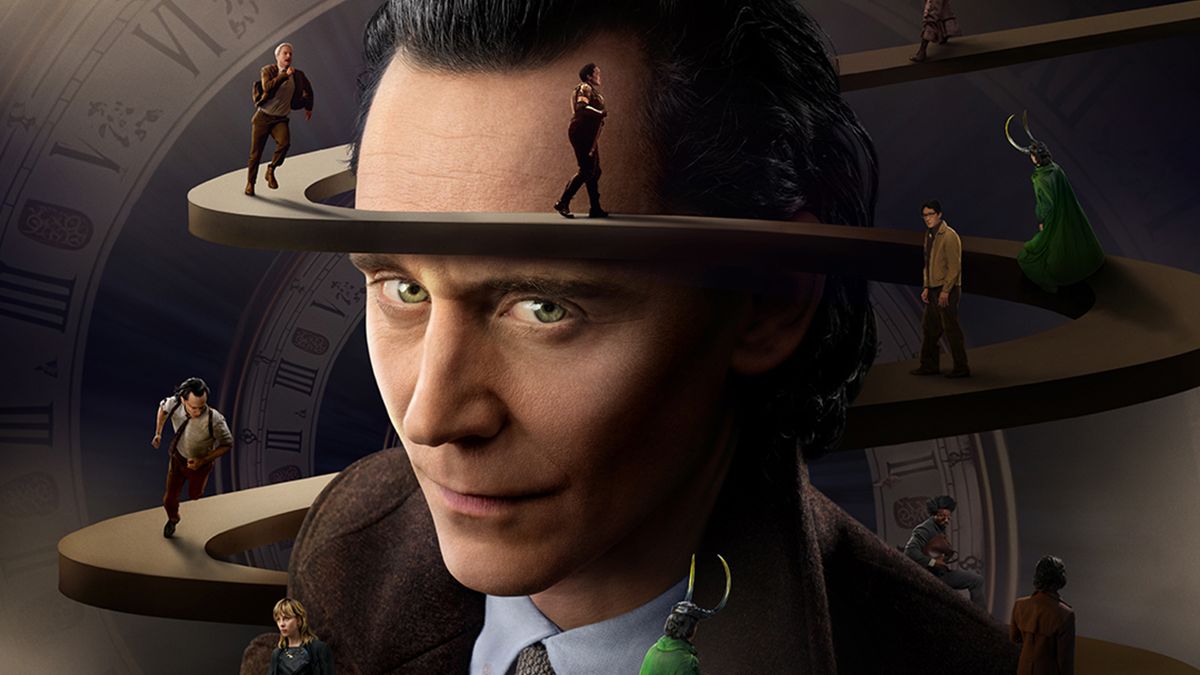Loki’s journey in the MCU started 12 years ago with the release of Thor. We watched him go from villain to anti-hero, before dying a hero’s death in Avengers: Infinity War. And then we got to see him do it all over again in this TV series. It’s a tremendous character arc, and if I were a ranking woman, I would say the exploration and development of his character has been the MCU’s best, maybe even above Tony Stark. This is due in large part to the efforts of Tom Hiddleston, and I say this with absolutely no fangirl bias.
He’s played the character with true sensitivity, fleshing out Loki’s vulnerabilities as well as showcasing his strengths. He does such memorable things with Loki’s physicality – like the hair flips and his precisive fighting style. His portrayal and the character’s emergence as a fan favourite is probably why we even got a TV show in the first place.
Considering how much I loved the first season of Loki, I have to admit that the early parts of Season 2 were not as strong. What worked is of course the buddy cop dynamic between Owen Wilson’s Mobius and Hiddleston’s Loki, as they investigate Renslayer’s (Gugu Mbatha-Raw) activities and plans from her forays into the past. This is also where we are introduced to one of Kang’s variants, Victor Timely (Jonathan Majors), both a scientist and a conman.
While Majors’ portrayal of He Who Remains was (and is) fantastic, Timely isn’t quite as fascinating. The acting is good, but generally there’s not much interest to be found in a man like Timely, and because we spend so many drawn out scenes with him and Renslayer, it hurts the momentum of the show. I understand the purpose – to remind the viewers that He Who Remains is very much a villain who has cast himself as God – but the scenes are fairly dull and don’t hold much interest. The Brad Wolfe subplot feels unnecessary as well, though we do get an excellent set piece out of that, so no complaints there. Ke Huy Quan is really funny as Ouroboros, and he truly shines in his scenes with Hiddleston and Wilson.
It’s when we hit Episode 4 that things truly start to get interesting as we get more episodes focused on Loki’s character and his time slipping. Why is this happening to him, and is it somehow linked to the emerging branches that can’t be contained in the Time Loom? The intricacy in the way script builds this whole time slipping aspect is absolutely mindblowing. We, much like Loki, begin to realise that the time slipping isn’t random, and that Loki needs to try and control it if he hopes to stop oblivion.
In Season 1, Loki’s scenes with Sylvie (Sophia Di Martino) were especially intriguing to watch unfold. This season, we don’t get as many of these moments (Sylvie is very much sidelined this season), but the ones that are there hit hard. It’s during his conversation with Sylvie that Loki admits his emotional attachment to the friends that he has made in the TVA, and that in part has built his resolve to solve this situation, so he can save them. Loki, who’s always felt so out of place in Asgard, who has always hurt the people he loves, has now discovered a newfound sense of altruism. His worldview has shifted, where his new priority is no longer just about himself and what he desires.
All these little discoveries lead him back to the pivotal moment with He Who Remains in Season 1. I so enjoyed Majors’ performance in the first season, and he brings the same energy to the role as he did before. His line delivery is impeccable – “Reincarnation, baby” is a particular standout – and he really nails that whole weary-lighthouse-keeper vibe. What’s particularly earth-shattering is realising that his last words, the almost casual “See you soon,” actually has a deeper meaning than what we initially perceived.
Loki is faced with a dilemma, and turns to his friends to figure it out. Mobius makes it clear that true purpose comes with burden; making the right choice is not always easy, but it is necessary. Sylvie feels like it isn’t so cut and dry, because maybe destruction can lay the groundwork for something that works better. And so Loki makes his choice, and becomes a god who is able to put others above his own flawed narcissistic perspective. It is an ending burdened with glorious purpose, and delivers something so bittersweet yet absolutely fitting to Loki’s journey.
I definitely cried a little when the credits ended and the words “Loki will return” didn’t appear on the screen. Perhaps the MCU will revisit the character in the future, but it seems highly likely that this is Hiddleston’s last appearance as Loki. But hey, all good things must come to an end, right?
READ NEXT: 11 Best New TV Shows of 2022
Some of the coverage you find on Cultured Vultures contains affiliate links, which provide us with small commissions based on purchases made from visiting our site.


